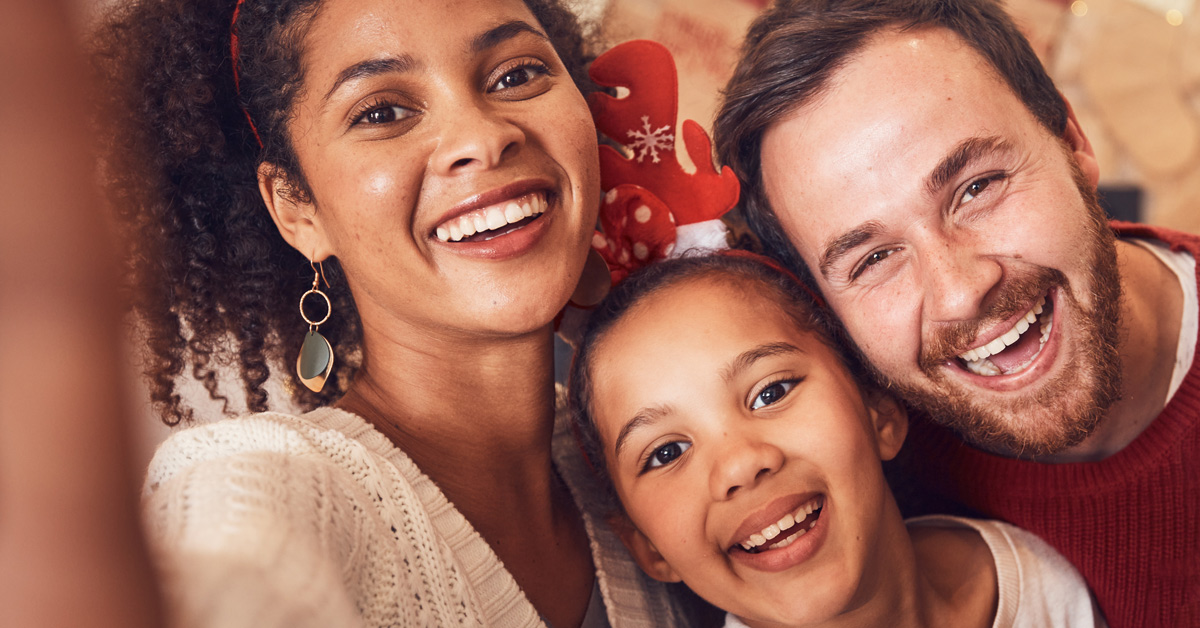Bringing on Holiday Cheer by Managing Pre-Holiday Stress
Bringing on Holiday Cheer by Managing Pre-Holiday Stress
Feeling the stress of the upcoming holiday season? Learn practical tips for managing your time and reducing overwhelm from Jennifer Snowdon, a LifeSpeak Inc. expert who specializes in yoga and breathing techniques.
Welcome to the most wonderful time of the year. That’s what they call it. It can be wonderful, but before we get to the wonder, there’s all of the prep, the lists, the shopping, the stress. At the end of what has been for many a very long year, I’m sure we could all use more of the cheer, and less of the stress. Here are a few of my top tips to make it truly joyful.
Make a list, check it twice
Don’t wait until the last minute to get things ready. I know that you already know this, but do you do it? Sit down today and make a list. What do you need to do before the holidays? And then, make another list of what you want to do before the holidays. Look at those lists — do you need to do everything on them, or are there things that you can either delete or delegate?
Simplify the to-do list and invite others, your partner or children, to join in the planning fun. Then pull out the calendar and organize yourself. Figure out when each item needs to be finished, and then stick to the list. Leave time and room for the unexpected so you aren’t panicked when something comes up.
Are you on the list?
Take stock of what you need for the holidays. What are the things that make your holiday time enjoyable and manageable for yourself? If I have to see too many people too many days in a row, I’m exhausted by the end of it and have no energy left for myself. I’m an introvert, so I make sure that there is enough alone time to recharge between social events so I can be present with others and not worn out by the end of the season. If I’m looking at the calendar and see it crowded with events, I re-evaluate what I am able to commit to. You might not be an introvert, so consider what things you might need. An extrovert might want to be sure there aren’t too many quiet days in a row.

It’s okay to say, “No”
It’s okay to choose to limit things. It might be an extra event that you just don’t have the energy to include in the plans. It’s also okay to decline food or drink. If you know that eating something will leave you feeling wrecked, take a polite pass on it. For some, alcohol is a huge part of celebrating, and for others, it’s a strong no, but even if you do enjoy a glass of wine occasionally, you don’t have to drink every time others are. Limiting alcohol consumption might help you feel able to keep up with the holiday schedule.
Beware of sugar as well. One New Year’s Eve, I drank non-alcoholic drinks all evening and felt just as awful the next morning as if it had been champagne all night.
Make movement a priority
Food can be a focal point of holiday gatherings, which is often followed by sitting around together. Some of this can be really wonderful and relaxing, but if all you do is eat and sit, you might feel sluggish and low energy. Find ways to incorporate movement into your day. Have a kitchen dance party with the kids, your partner, or by yourself. Bundle up and go for a walk after a big meal. Plan outdoor activities when you can. Make a trip to the gym a family adventure so that everyone can run off some excess energy. If you’re on your own, set some personal fitness goals; the gym can be a great place to socialize (see familiar faces) or simply recharge and enjoy some valuable “me time.” If you are in a cold place with snow, go tobogganing, build a snowman, make snow angels, or have a snowball fight. Remember — there is no inappropriate weather, only inappropriate clothing, so don’t let the cold limit you. If you’re somewhere warm, you have fewer excuses. Keep it simple and make it fun.
Get creative
There are lots of ways to incorporate the arts into the holidays. Creating can be soothing or calming for the nervous system. It could be as simple as a holiday craft with a friend or two or with the kids, coloring in mandalas or making paper snowflakes. If you’re more adventurous, you could start knitting (or start knitting again), painting, or writing the next great novel. If you have a chance, sing some carols. Singing with a group of people has been shown to lower stress levels. All of these things can help ground you if you’re feeling overwhelmed.
Notice your breathing
As stress builds, we might not even be aware of it. It’s possible that with all the fun and excitement of the holidays, you won’t notice that you are feeling overwhelmed until it’s too late. Check in with your breath from time to time. The breath can be a signal from the unconscious self to the conscious self. It can say things like, “I feel so excited to be doing this!” Or maybe it will say, “I feel like I can’t handle this.” Sometimes the breath will say, “I had such a lovely and relaxing day.”
The breath is quiet, and you have to stop to listen to its message. If you don’t give yourself a chance to do this during the day, the messages might be really loud when you finally have a chance to be quiet and go to sleep. Some kinds of breathing that can be associated with stress are mouth-breathing, breathing into your upper chest, loud or really fast breathing, tight breathing, and breath-holding. If you happen to notice any of these, stop and ask yourself if you are okay and if you need something.
Let go of expectations
If we come into the holidays with an idea of what they should be, we might miss what they actually are. Do your best to prepare, then let go and just enjoy. People won’t remember the details; they remember how they felt. That’s what you’ll remember, too. Have a happy holiday!
This holiday season, give your teams the gift of resilience. Equip your employees with guidance from top experts like Jennifer to build resilience, manage stress, and prioritize their wellbeing all year long. Explore LifeSpeak’s Mental Health and Resilience solution today.
About the Author, LifeSpeak Inc. expert Jennifer Snowdon
 Jennifer Snowdon is a Yoga Teacher and Buteyko Breathing Educator working and living on the east coast of Canada with her husband, one of her three children, her two cats, and one fish. She spends her free time knitting, swinging her Gumdo sword, and making killer pizzas for her family.
Jennifer Snowdon is a Yoga Teacher and Buteyko Breathing Educator working and living on the east coast of Canada with her husband, one of her three children, her two cats, and one fish. She spends her free time knitting, swinging her Gumdo sword, and making killer pizzas for her family.
As the only trauma-informed Buteyko Educator, she looks at breathing through a unique lens in her Breath Retraining Courses.
Bringing together the traditions of yoga, the science of breath and body, and the understanding of the nervous system and trauma, she helps people move, breathe, and live more present and connected lives.
